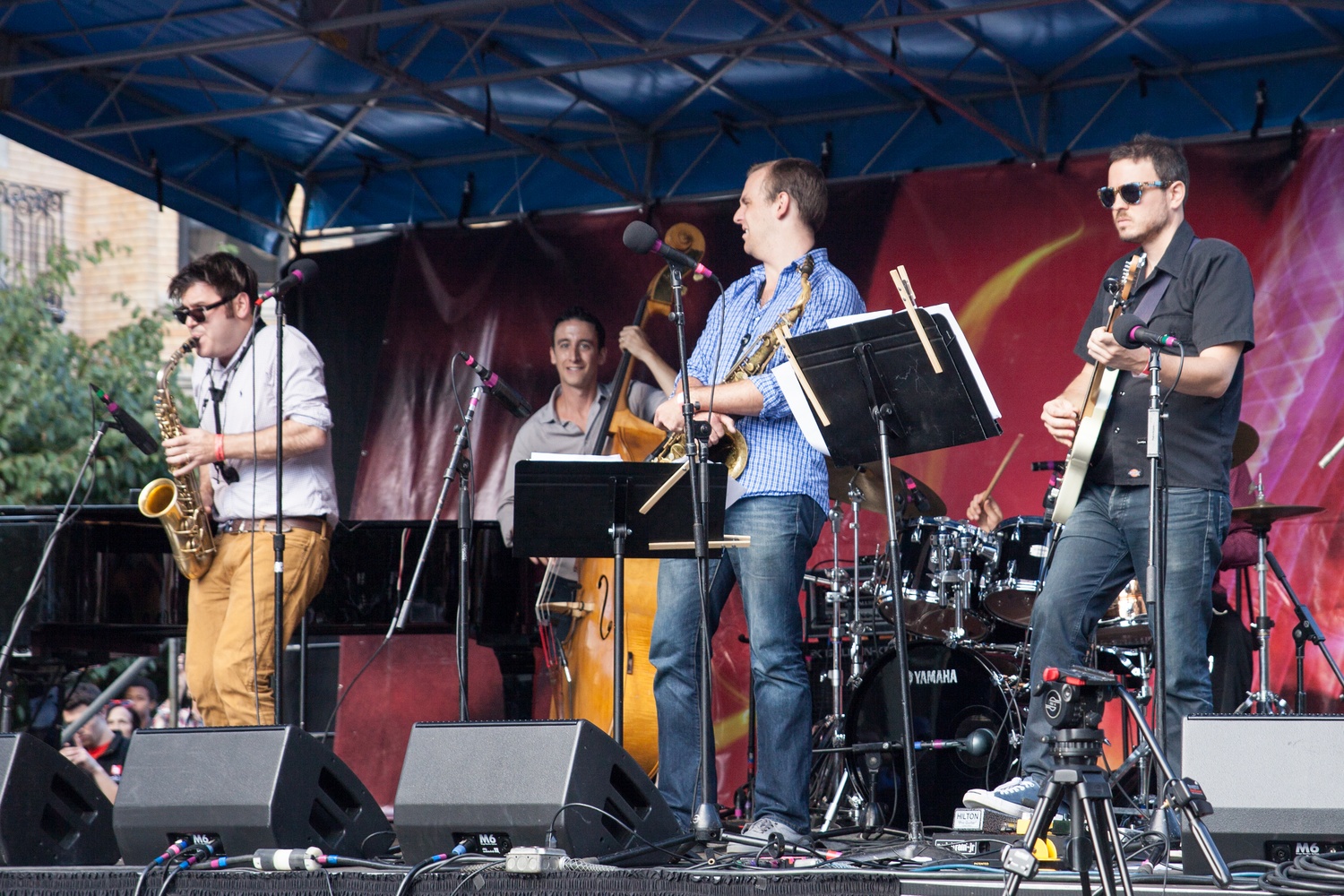
News
Cambridge Residents Slam Council Proposal to Delay Bike Lane Construction

News
‘Gender-Affirming Slay Fest’: Harvard College QSA Hosts Annual Queer Prom

News
‘Not Being Nerds’: Harvard Students Dance to Tinashe at Yardfest

News
Wrongful Death Trial Against CAMHS Employee Over 2015 Student Suicide To Begin Tuesday

News
Cornel West, Harvard Affiliates Call for University to Divest from ‘Israeli Apartheid’ at Rally
John Scofield Brings Fresh Sounds to Local Jazz Festival

Some might say that jazz and country music belong on different continents. Yet at the opening night of his alma mater’s annual Berklee Beantown Jazz Festival, John Scofield demonstrated that each genre is merely an island in a musician’s pond and that bridges can be built to connect them. From the abstract unaccompanied guitar to the organ chords over syncopated drumming and the jazzier solos, the inherent nuance of the 10-song set list kept the spectators lively and won Scofield a standing ovation.
Scofield released his new album, “Country for Old Men,” on the day of the concert to high expectations: His previous record, “Past Present,” won the 2016 Grammy Award for Best Jazz Instrumental Album and was nominated for another award. Nevertheless, there was no evident pressure in the room as Scofield and his bandmates—drummer Bill Stewart, bassist Steve Swallow, and pianist and organist Larry Goldings—masterfully captured the calming spirit of country balladry and the vivid energy of western rock and roll.
One of the early highlights of the concert was the folk song “Red River Valley,” which Scofield introduced as something he doubted was sung in school music classes anymore (“Oh, they don't have music in school!” he followed, to hefty audience laughter). Beginning with Goldings boldly playing the famed melody on organ at an upbeat tempo, the song soon broke to a quiet swing for a calm guitar solo. This section lasted for a few minutes, with Scofield tinkering with various scales and descending diminished chords (in contrast to the basic major progression of the intro), and was followed by shorter solos by Goldings, Swallow, and Scofield again. After a few bars of Stewart’s drumming, the jarring shift occurred again—the fast organ melody was recapitulated to the end of the song. This number seemed, in a sense, allegorical for the entire concept: highly experimental and intriguing, yet simultaneously familiar and crowd-pleasing—a juxtaposition that elicited much surprise and many smiles.
From the mysterious “Jolene” to the ebullient “Wildwood Flower,” the rest of the country-jazz program was varied and unpredictable. Perhaps the most unconventional song was the rendition of “I’m So Lonesome I Could Cry” by Hank Williams, played under purple lights to octatonic guitar scales and a rapid 4/4 construction. The original, for comparison, was a major-key, downtempo waltz. Larry Goldings took a more prominent role during the second piece of the night, Merle Haggard’s “Mama Tried,” in which he had an extensive and highly technical piano solo. The slowest song of the night came at one of its most beautiful moments: the encore. After introducing “Just a Girl I Used to Know,” a George Jones classic, Scofield read the lyrics of the first verse aloud: “There’s a picture that I carry / One we made some time ago / If they ask who’s in the picture with me / I say just a girl I used to know.”
Want to keep up with breaking news? Subscribe to our email newsletter.
